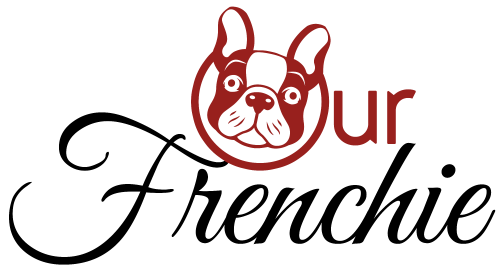About
11 Ways to Completely Sabotage Your French Bulldogs
Page Contents
Feeding Your French Bulldog a Poor Diet
Feeding your French Bulldog a poor diet can be one of the most detrimental ways to sabotage their health. French Bulldogs are prone to certain health issues, such as allergies, digestive problems, and weight gain. By feeding them a diet that is high in processed foods, fillers, and artificial ingredients, you are putting them at risk for these issues and more.
Instead, opt for a high-quality, balanced diet that is specifically formulated for French Bulldogs. Look for a dog food that lists a high-quality protein source as the first ingredient, such as chicken or fish. Avoid foods that contain grains, as French Bulldogs can be prone to allergies. Additionally, be mindful of portion sizes and avoid overfeeding, as French Bulldogs are prone to weight gain, which can exacerbate their health issues.
Not Providing Regular Exercise
French Bulldogs may be small in size, but they still require regular exercise to maintain their health and well-being. Lack of exercise can lead to weight gain, muscle loss, and behavioral issues. French Bulldogs are a brachycephalic breed, meaning they have a short, pushed-in nose, which can make it more difficult for them to breathe, especially in hot weather. Regular exercise can help to keep their weight in check, improve their breathing, and prevent obesity-related health issues.
Make sure to provide your French Bulldog with at least 30 minutes to an hour of exercise each day. This can be a combination of walks, playtime, and mental stimulation. However, be mindful of your French Bulldog’s limitations, especially in hot weather. Avoid exercising them during the hottest parts of the day, and provide plenty of water and shade to keep them cool and hydrated.
Skipping Regular Vet Check-ups
Regular vet check-ups are a crucial aspect of keeping your French Bulldog healthy and preventing serious health issues. By skipping these check-ups, you may be missing crucial signs and symptoms of potential health problems, and they can go undetected until they become more serious and harder to treat.
Make sure to schedule regular check-ups with your veterinarian, at least once a year, or more frequently as recommended by your vet. During these check-ups, your vet will be able to monitor your French Bulldog’s health, perform necessary vaccinations, and check for any signs of potential health issues. Additionally, your vet can provide personalized advice on diet, exercise, and any breed-specific health concerns that may affect your French Bulldog.
Ignoring Dental Care
Ignoring your French Bulldog’s dental care can lead to a host of dental issues, including gum disease, tooth loss, and even systemic health problems. French Bulldogs, like many other small dog breeds, are prone to dental issues, and regular dental care is essential to prevent these problems.
Make it a habit to brush your French Bulldog’s teeth at least two to three times a week, using a dog-specific toothbrush and toothpaste. Additionally, provide dental chews or treats that are designed to help clean their teeth and promote good oral health. Regular dental cleanings by your veterinarian may also be necessary, depending on your French Bulldog’s dental health.
Exposing Your French Bulldog to Extreme Temperatures
French Bulldogs have a difficult time regulating their body temperature, especially in extreme heat or cold. Exposing your French Bulldog to extreme temperatures can lead to heatstroke, frostbite, and a host of other health issues. It’s essential to provide your French Bulldog with a comfortable, temperature-controlled environment to keep them safe and healthy.
During hot weather, keep your French Bulldog indoors, or provide them with a cool, shaded area to escape the heat. Avoid exercising them during the hottest parts of the day and always provide them with access to fresh water. In cold weather, provide them with warm shelter and consider using clothing or blankets to keep them warm during walks or outdoor activities.
Allowing Your French Bulldog to Become Overweight
French Bulldogs are prone to weight gain and obesity, which can lead to a host of health problems, including joint issues, heart disease, and diabetes. Allowing your French Bulldog to become overweight can significantly reduce their quality of life and lifespan.
Monitor your French Bulldog’s weight regularly and adjust their diet and exercise accordingly. Avoid overfeeding and provide them with a balanced diet that meets their nutritional needs. Regular exercise, such as walks and playtime, is essential to help them maintain a healthy weight.
Not Socializing and Training Your French Bulldog
French Bulldogs are known for their friendly and sociable nature, but without proper socialization and training, they can develop behavioral issues. Failing to socialize and train your French Bulldog can lead to problems such as aggression, excessive barking, and separation anxiety.
Make sure to expose your French Bulldog to a variety of people, animals, and environments from a young age. Enroll them in puppy socialization classes and obedience training to help them develop good manners and social skills. Regular and consistent training, combined with positive reinforcement, can help to prevent and correct behavioral issues.
Leaving Your French Bulldog Alone for Extended Periods
French Bulldogs are a social breed and thrive on human companionship. Leaving your French Bulldog alone for extended periods, such as during the workday, can lead to separation anxiety and destructive behavior.
If you work long hours, consider hiring a dog walker or pet sitter to provide your French Bulldog with social interaction and exercise during the day. Alternatively, you can also consider doggy daycare or enrolling them in doggy playgroups to keep them entertained and socialized.
Using Punishment-based Training Techniques
Using punishment-based training techniques can be highly detrimental to your French Bulldog’s well-being and can lead to fear, anxiety, and aggression. French Bulldogs respond best to positive reinforcement training methods, which involve rewarding desired behaviors with treats, praise, and play.
Avoid using methods such as yelling, hitting, or using shock collars, as these can cause your French Bulldog to become fearful and may lead to long-term behavioral issues. Instead, focus on positive reinforcement, consistency, and patience to teach your French Bulldog obedience and good manners.
Not Providing Mental Stimulation
French Bulldogs are intelligent dogs that thrive on mental stimulation. Failing to provide them with enough mental stimulation can lead to boredom, which can manifest in destructive behavior, excessive barking, and other behavioral issues.
Engage your French Bulldog in mentally stimulating activities, such as puzzle toys, obedience training, and interactive play. Teach them new tricks and provide them with toys that challenge their minds, such as treat-dispensing toys. Regular mental stimulation will help to keep your French Bulldog happy, content, and well-behaved.
Ignoring Signs of Illness
French Bulldogs have specific health issues, and ignoring signs of illness can lead to serious and potentially life-threatening health complications. It’s essential to be vigilant and attentive to any changes in your French Bulldog’s behavior, appetite, or physical appearance.
Seek veterinary attention if your French Bulldog displays any signs of illness, such as excessive lethargy, loss of appetite, vomiting, diarrhea, or difficulty breathing. Early detection and treatment can significantly improve your French Bulldog’s prognosis and quality of life.


